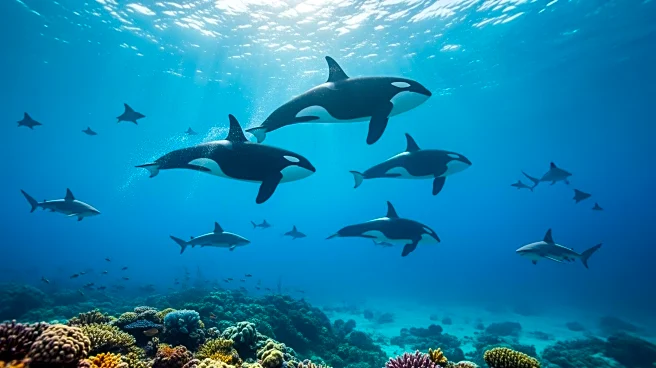What's Happening?
Newly released drone footage has captured orcas in the Gulf of California exhibiting a rare behavior of hunting and disemboweling great white sharks. The footage shows orcas flipping the sharks to induce
tonic immobility, a state of paralysis, allowing them to extract the sharks' livers. This behavior, previously observed only off the coast of South Africa, suggests a new shark-hunting ecotype among orcas in this region. Marine biologist Erick Higuera, who has studied this pod, published these findings in the journal Frontiers in Marine Science, highlighting the orcas' sophisticated hunting strategies.
Why It's Important?
This discovery of orcas hunting great white sharks in the Gulf of California could have significant ecological implications. The behavior may indicate a shift in the local marine ecosystem, potentially affecting shark populations and their role as apex predators. The findings could prompt conservation efforts to protect both orcas and sharks from human activities such as overfishing and excessive whale-watching tours. Understanding these predatory dynamics is crucial for marine biologists and conservationists aiming to maintain ecological balance in the region.
What's Next?
Researchers may continue to monitor this pod of orcas to gather more data on their hunting patterns and ecological impact. The Mexican government might consider implementing protective measures for these marine species to prevent disruptions caused by human activities. Further studies could explore whether this behavior is spreading among other orca populations and its long-term effects on marine ecosystems.
Beyond the Headlines
The orcas' ability to adapt their hunting strategies and target different prey highlights their intelligence and social learning capabilities. This behavior could lead to a reevaluation of orca ecotypes and their classification, influencing future research and conservation policies.









